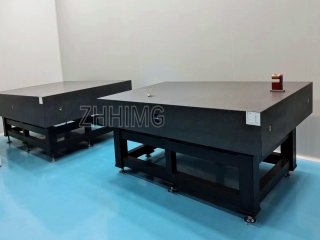Precision Ceramics and Granite: Main Advantages and Applications
Precision ceramics and granite are two materials that have gained significant attention in various industries due to their unique properties and advantages. Both materials are known for their durability, stability, and versatility, making them ideal for a wide range of applications.
Advantages of Precision Ceramics
Precision ceramics are engineered materials that exhibit exceptional hardness, wear resistance, and thermal stability. One of the main advantages of precision ceramics is their ability to withstand extreme temperatures and corrosive environments, making them suitable for applications in aerospace, automotive, and medical industries. Their low thermal expansion coefficient ensures dimensional stability, which is crucial in high-precision applications such as semiconductor manufacturing and optical components.
Additionally, precision ceramics are non-conductive, making them ideal for electrical insulation in various electronic devices. Their biocompatibility also allows for their use in medical implants and dental applications, where they can integrate seamlessly with biological tissues.
Advantages of Granite
Granite, a natural stone, is renowned for its strength and aesthetic appeal. One of its primary advantages is its resistance to scratching and staining, making it a popular choice for countertops, flooring, and architectural features. Its natural beauty and variety of colors and patterns also make it a favored material in interior design.
In industrial applications, granite is often used for precision tooling and machine bases due to its stability and ability to maintain accuracy over time. Its density and rigidity help absorb vibrations, which is essential in high-precision machining processes.
Applications
The applications of precision ceramics and granite are vast. Precision ceramics are utilized in cutting tools, insulators, and components for electronic devices, while granite is commonly found in construction, kitchen countertops, and monuments. Both materials play a crucial role in enhancing performance and longevity in their respective fields.
In conclusion, the unique advantages of precision ceramics and granite make them indispensable in various industries, offering solutions that combine durability, precision, and aesthetic appeal. Their continued development and application promise to drive innovation across multiple sectors.
Post time: Oct-29-2024

